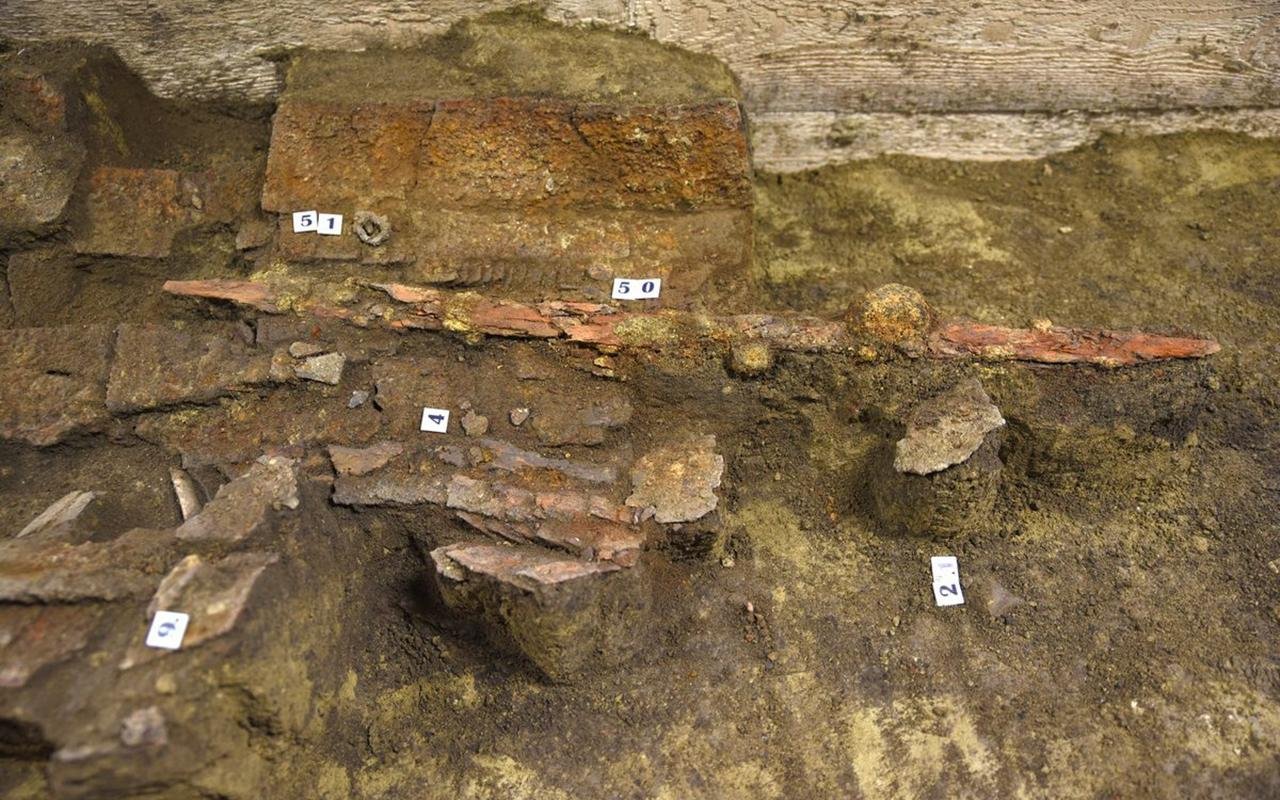The Déri Museum in Debrecen has revealed the burial site of an Avar warrior adorned with a fully intact set of lamellar armor. The discovery was made near the village of Ebes in Hajdú-Bihar county, Hungary.
 The remains of the Avar warrior. Credit: Déri Múzeum
The remains of the Avar warrior. Credit: Déri Múzeum
The warrior’s grave was discovered in November 2023. The Pannonian Avars were a nomadic group from Central Asia that formed the Avar Khaganate, spanning the Pannonian Basin and parts of Central and Eastern Europe.
The burial, considered one of the best-preserved Avar funerary sets to date, includes the remains of the warrior, his horse, and an array of funerary offerings. Among these offerings is a complete set of lamellar armor, a type of body armor constructed from small rectangular plates known as lamellae. These lamellae are intricately laced together, forming horizontal overlapping rows or bands.
This discovery represents the second complete example of such armor found in Hungary. The lamellar armor was found as a funerary deposit above the warrior, along with a wooden quiver containing arrows, a bow, and a sword.
The funerary offerings suggest that the warrior held a considerable high status within the Avar community. The discovery challenges previous ᴀssumptions about Avar’s history in the Early Middle Ages and solidifies Debrecen as a vital hub for archaeological research in Hungary during this period.
The burial site also aligns with Avar traditions, as the remains of a horse were discovered alongside the warrior. Avar customs often involved the sacrificial placement of horses, believed to possess supernatural powers.
To further highlight this exceptional find, the Déri Museum organized a press conference attended by Debrecen Mayor László Papp and Councilwoman Erzsébet Katona.
The discovery of the Avar warrior, affectionately named “Rufus” after the day of its discovery, rewrites the region’s Avar history. The museum’s restoration workshop is currently conducting detailed analysis and documentation of the complete funerary set.
More information: Déri Múzeum





